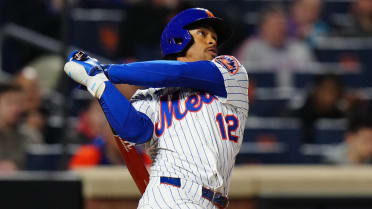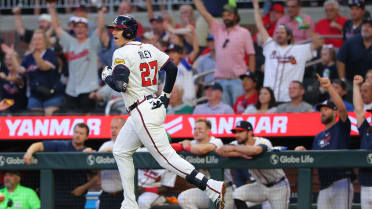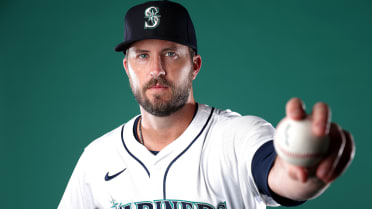MILWAUKEE – A matchup of aces for first-place teams was settled before one of those pitchers even made it to the mound.
Corbin Burnes and the Brewers faced a four-run deficit by the time Burnes recorded the first out of what became a six-run first inning and a 9-1 loss to Merrill Kelly and the D-backs at American Family Field on Monday night. The defeat dropped the Brewers behind the surging Reds in the National League Central standings.
In Cincinnati, Joey Votto homered and hit a go-ahead single in his long-awaited return from the injured list as Cincinnati ran its winning streak to nine. In Milwaukee, Burnes surrendered more hits before recording an out (four) than the Brewers had all night against Kelly and a pair of relievers (three).
Burnes matched his career high for runs allowed (seven) and his career low for strikeouts in a start (three). He threw 86 pitches and induced six swinging strikes, the third-lowest total for any of his 90 regular-season and postseason starts.
“It just happened very quickly,” said Arizona manager Torey Lovullo. “Without giving away a strategy, I think it's fairly obvious our guys were ready to hit from the first pitch on.”
That was an understatement. Geraldo Perdomo hit the game’s very first pitch, a cutter, for a double that bounced inside of first base, 95.9 mph off the bat, according to Statcast.
Ketel Marte hit the game’s second pitch, a cutter, for a line-drive single to right field, 110.5 mph off the bat.
“They were like that the last time we played. They came out, and they swung the bats,” said Burnes, who scattered three hits in eight scoreless innings at Arizona on April 11. “That’s the reason we were able to go deep in that game the last time we faced them. We knew they were going to come out swinging.
“I just didn’t execute early in that first inning. Two pitches in, we had [first] and third with nobody out. Really, the first three hitters kind of changed that game for me.”
The third hitter was Corbin Carroll, who walked to load the bases before Christian Walker dumped a broken-bat single (69.5 mph) into center field, where Joey Wiemer deked Perdomo into thinking he’d make a catch. An on-target throw home could have produced a rare 8-2 forceout, but Wiemer’s throw was wide and the run scored.
Lourdes Gurriel Jr. then lined a two-run single, on a cutter, 92.6 mph off the bat.
It wasn’t until Emmanuel Rivera’s RBI fielder’s choice that Burnes and the Brewers recorded the first out of the game, but by then it was 4-0. When Alek Thomas launched a two-run home run two batters later, 104.6 mph off the bat, again on a cutter, Burnes was in a 6-0 hole.
“Two non-executed cutters, then the walk, and they were rolling,” Burnes said.
Said Lovullo: “It's power stuff, and I think our guys were ready to counterpunch that a little bit today. Just by being aggressive and getting some extension on some balls they felt like they can handle.”
The Brewers’ early deficit spelled trouble against the Arizona right-hander Kelly, who allowed a run on three hits in seven innings to lower his ERA to 2.90.
What did Burnes tell himself after those first three batters?
“Just to keep pitching,” Burnes said. “No one wants to give up runs in the first inning, let alone the first couple of hitters. You just have to get back to the mentality of trying to execute as many pitches as you can.
“Tonight, we were able to do that after the first inning. But the beginning killed us tonight.”
It wasn’t the worst inning of his career. Burnes surrendered seven earned runs in two-thirds of an inning in Atlanta in May 2019, before he remade himself physically and mentally and transformed into a Cy Young Award winner. But it was Burnes’ worst inning as a starting pitcher. He had never allowed more than four runs in any inning of a start before Monday.
The Brewers’ pain was the Reds’ gain. Cincinnati pushed into first place this deep into a season for the first time since 2012.
“We have to focus on what we’re doing in this clubhouse and how we’re competing every day,” Burnes said. “We’re hardly 70 games into the season. There’s still a lot of baseball to be played. Just like every year, late August and September is when it gets decided.”
Supervising Club Reporter Adam McCalvy has covered the Brewers for MLB.com since 2001.




